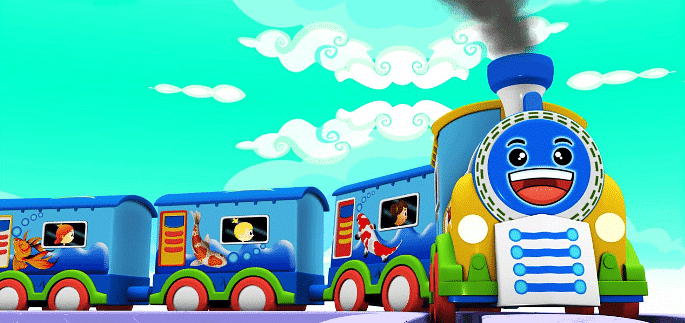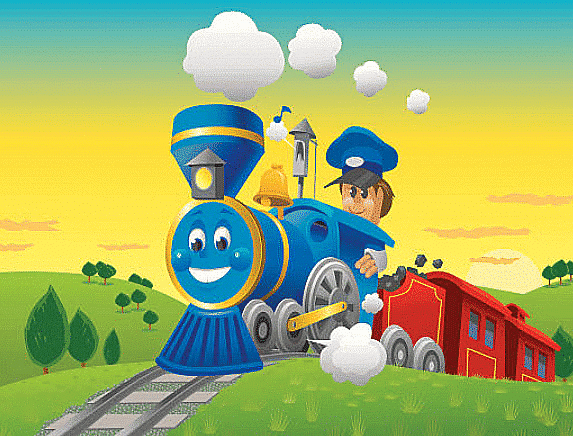Trains - 1 Class 3 Worksheet English Unit 6
 Q1: Multiple Choice Questions (MCQs)
Q1: Multiple Choice Questions (MCQs)
(i) What is the central theme of the story?
(a) Midnight adventures of the road
(b) Awakening of a quiet road in the morning
(c) Noisy chaos in a busy marketplace
(d) Life in a bustling city at night
(ii) Who is responsible for waking up the road in the morning?
(a) Dogs barking
(b) Crows cawing
(c) Chirrup of birds, vegetable man, newspaper vendor, and school-going children
(d) The sound of traffic
(iii) What irritates the road in the story?
(a) Horns honking
(b) Crows cawing
(c) Children playing
(d) Bells ringing
(iv) Where is the author from?
(a) London, UK
(b) New York, USA
(c) Bangalore, India
(d) Sydney, Australia
(v) What else did Poile Sengupta do apart from writing?
(a) Cooking
(b) Acting and founding a theatre club
(c) Painting
(d) Singing in a band

Q2: True & False Questions
(i) The story describes the quiet road getting busy in the morning.
(ii) The road in the story remains peaceful and undisturbed throughout the day.
(iii) The author, Poile Sengupta, is primarily known for her writings for adults.
(iv) The road in the story is annoyed by the repeated chirping of birds.
(v) Poile Sengupta worked as a high school teacher but not as a college professor.
Q3: Fill in the Blanks
(i) The road slowly gets busy with all the ________ in the morning.
(ii) The road gets irritated at the _________ repeatedly.
(iii) Poile Sengupta founded a club for _________, based in Bangalore.
(iv) Most of Poile Sengupta's writings are dedicated to ________.
Q4: Read the lines from the poem and answer the questions that follow.
Carrying passengers,
Carrying mail,
Bringing their precious loads
In without fail.
(i) What carries the passengers and the mails?
(ii) The word 'their' refers to.
(iii) Where are the loads being sent to?
Q5: Answer the following Questions
(i) If you had to spend the night on a train, what would you need to take with you?
(ii) Can you make the sounds which you hear when you walk on the road?
You can access the solutions to this worksheet here.
|
51 videos|346 docs|72 tests
|
FAQs on Trains - 1 Class 3 Worksheet English Unit 6
| 1. What is the history of trains? |  |
| 2. How do trains work? |  |
| 3. What are the advantages of traveling by train? |  |
| 4. How has the development of trains impacted society? |  |
| 5. What are some famous railway networks around the world? |  |
















